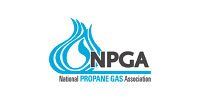Importance of Propane Safety
Discounts Available | Free Safety Checks | Free Estimates
Discounts AvailableFree Safety ChecksFree Estimates
Few Tips for Propane Safety
- Handle the propane cylinder cautiously
- Follow the instructions provided by the manufacturer
What Should You Do in Case of Propane Leak?
- Leave the building immediately
- Do not try to fix it on your own
- Call the fire department
- Do not strike any matches
Some Propane FAQs You Should Know About
- What is Propane?
Propane is a hydrocarbon, popularly known as LPG. It is produced from both natural gas and crude oil refining. A colorless substance, propane is odorless and nontoxic. To make it easily detectable, an identifying odor is added to it.
- Who Uses Propane?
Nearly 13 million U.S. households use it for home heating, agricultural, industrial, commercial and transportation purposes.
- Is Propane Environmental Friendly?
Propane is safe for the environment. It is listed as a good alternative to fuel in the 1990 Clean Air Act.
- Is Propane and Natural Gas the Same?
There is a small difference between Propane and Natural Gas when compared to performance level in residential or commercial uses. Propane is a byproduct of natural gas or petroleum.
- How Can I Use Propane For Household Use?
Propane can be safely used at home for water heating, home heating, clothes drying, cooking and in the fireplaces. You can also use Propane for standby generators.
- How Do I Know If There Is A Propane Leak In My Home?
Propane in its original form is odorless. So Propane manufacturer deliberately adds the smell to help customers know if there is a leak. It has a pungent smell, so you can detect easily if ever it leaks.
- Is Propane Imported In the US?
Propane cannot be imported. More than 95 percent of Propane we use is produced in North America.
- When and Why Is A Propane Leak Test Required?
As an added safety measure, the National Fire Protection Agency (NFPA) under Code 54 states that a system must be leak tested after an interruption in service. Instances such as tank running out of Propane can be taken into account.
- Is Propane Environmental Friendly?
Propane is safe for the environment. It is listed as a good alternative to fuel in the 1990 Clean Air Act.
FREE Safety Checks
Get in touch with us if you have any safety concerns.
VISIT US
HOURS
HOURS
CONTACT US
- Main: (218) 233-2421
- Mobile: (218) 233-2421

